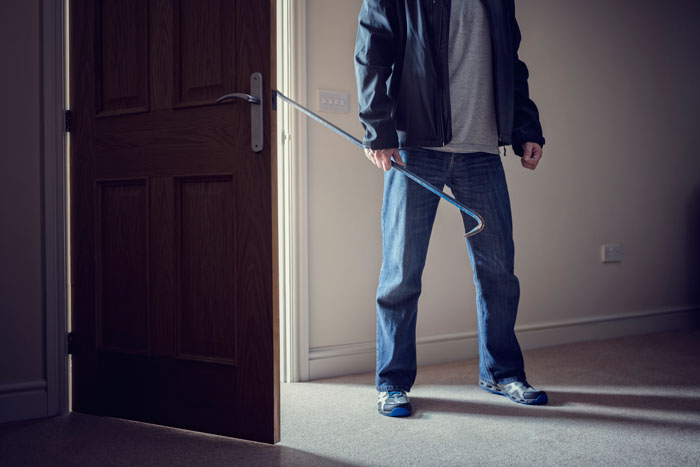
Why Some People Are Sentenced to a Maximum-Security Prison
When you watch news stories covering criminal cases, you’ll often hear the word maximum security prisons and minimum security prisons mentioned. Many people find it difficult to understand why some people are sentenced to maximum security prisons.
What are Maximum Security Prisons
Maximum-security prisons doesn’t necessarily mean that the prison is considerably worse than a low-security prison. When a person is sent to a maximum security prison, it means they will be incarcerated at a facility where they will experience the maximum amount of supervision.
In the United States, maximum security prisons are designed so that the perimeter is heavily reinforced, making an escape difficult. The exact housing situation inmates experience depends on what type of treatment they require, solitary confinement or communal living. Most maximum security prisons have both single cell housing and multiple cell housing. The biggest difference between maximum-security prisons and low-security prisons is the staff. Maximum security prisons have a significantly higher staff-to-inmate ratio than other types of prisons.
Inmates who are sentenced to a maximum-security prison will sometimes have access to educational, religious, and health services, but they won’t be offered the work-related programs lower security prisons offer. They will also find that visitors face stricter rules. The ability for inmates to socialize is extremely limited in a maximum-security prison. In most cases, inmates at maximum security prisons are confined to their cells for 23 hours a day.
Why Some Inmates are Sent to Maximum Security Prisons
Several different things are considered when it comes to deciding where a person will be sent after they’ve been convicted of a crime. The severity of the crimes they’ve been convicted of. They’re criminal history. Whether they seem like an escape risk.
No one is sent to a maximum-security prison without serious consideration. The main thing that’s taken into consideration is whether the inmate is someone who is considered a great risk to the general public. If the answer is yes, they will be sent to a maximum-security prison where their ability to interact with the public and other inmates is severely limited. If an inmate has tried to escape from prison, they will be sent to a maximum-security prison. Inmates that have a history of aggressive behavior toward other inmates and/or prison staff will likely be transferred to a maximum-security prison.
Individuals who commit non-violent crimes and who stay out of altercations while they serve their sentence are usually allowed to stay at lower-security prisons.

Bereavement Leave in California
Bereavement is the time it takes a person to handle the passing of a loved one. It isn’t much time. It is literally just enough time to arrange for a funeral and to handle the immediate legal necessities connected to your loved one’s passing. Once the bereavement period has passed, you’ll have to return to work or arrange for personal time.
One of the nice things about working in California is that on January 1, 2023, a bereavement law went into effect. The law requires that any employer who has more than five employees must provide their employees with up to five days of bereavement time. This particular bereavement law is for the loss of a domestic partner, a close family member, or an extended family member.
In order to qualify for the five days of bereavement time, the employee must have been on the payroll for at least thirty days.
Things everyone should know about California’s bereavement laws:
- The days don’t have to be used consecutively
- The leave must be taken during the first three months of the person’s death
- Employers aren’t required to pay their employees for bereavement time.
- The employer is allowed to request proof of the loss.
If the bereavement time has passed and you still don’t feel able to return to work, you’ll have to sit down and discuss the situation with your employer. It’s possible that they’ll let you take a leave of absence, use some of your personal days, or even take your vacation days so you can deal with the loss.

Can I Be Arrested and Lose My Driver’s License for Speeding
The sight of blue lights flashing in the rearview mirror and the realization that you are going way above the posted speed limit causes everyone to break out in a cold sweat. The faster you’re going, the more likely it is that you’ll find yourself spontaneously worrying about things like, can I be arrested and lose my driver’s license for speeding in California?
Technically, the answer is no. Speeding by itself isn’t a criminal offense, but that doesn’t mean that a traffic stop that starts out as a speeding offense won’t end in an arrest.
The first thing the office is going to want to know is whether you’ve been drinking. They will make a quick assessment of this as soon as they approach your car and start speaking to you. If they smell alcohol or feel that you’re behaving like you’re under the influence, they will conduct a field sobriety test. If you fail, you’ll be arrested. If you’re convicted of a DUI in California, you will lose your driver’s license for a period of time. How long you’re driving privileges are revoked depends on the judge’s sentence and whether it’s your first DUI.
If the officer happens to see something illegal, such as a weapon or drug paraphernalia on your passenger seat, they can use this visual evidence as an excuse to search your entire car. If they find additional illegal items, you’ll be arrested.
One of the most common reasons for a person to be arrested after they’ve been pulled over for speeding is a bench warrant. After they pull you over, the police run a quick criminal background check. If this background check reveals that you have an outstanding bench warrant, you’ll be arrested and required to deal with whatever matter the bench warrant involves.
While you can’t be arrested for speeding in California, the police do have one trick up their sleeves. If they feel that your speeding or the manner you were driving was reckless. While not all reckless driving ticket result in an arrest, the officer does have the right to arrest you if they feel that you’re driving in a manner that’s a danger to society. In California, reckless driving is a misdemeanor. The first time you’re convicted of reckless driving, you could be sentenced to spend up to ninety days in a county jail and fined up to $1,000.

What Happens if I Disturb the Peace in California?
Disturbing the peace is kind of a blanket term in California. If you’re charged with disturbing the peace, it basically means that you did something to irritate someone. Examples of this can include anything from deciding to mow your lawn in the middle of the night to playing really loud music, getting into a fight, and even using language that someone near you found offensive.
The truth is that the police frequently get calls about disturbing the peace. While they always respond to these calls, they don’t always file charges. An example of a case where they might decide to skip filing charges and simply issue a warning is if a neighbor calls the police and complains that you’re swearing is disturbing their peace. In this situation, the police might ask you to clean up your language or at least swear quietly. They may also ask some questions to see if there’s an underlying and potentially illegal reason why your neighbor is so irritated with you.
On the other hand, if you’re throwing a party and the police have had several complaints about the noise, it’s likely that they will decide to press charges of disturbing the peace.
When you review Penal Code 415 PC, which discusses disturbing the peace in California, you’ll learn that people who are convicted of disturbing the peace are:
- (1) Any person who unlawfully fights in a public place or challenges another person in a public place to fight.
- (2) Any person who maliciously and willfully disturbs another person by loud and unreasonable noise.
- (3) Any person who uses offensive words in a public place which are inherently likely to provoke an immediate violent reaction.
If a disturbing the peace case makes it to trial, the main thing the prosecution must prove to secure a conviction is that the defendant willfully disturbed the peace. This is one of the main reasons many police officers issue a warning when they originally responded to a disturbing the peace call. It’s easy for a defendant to say that they didn’t know they were disrupting someone the first time a call is made. It’s harder for them to claim they weren’t willfully doing something that they knew irritated others the second, third, or fourth time the police are called.
The maximum sentence connected to a disturbing the peace conviction is a 90-day jail sentence and/or a $400 fine.

What You Need To Know About Property Crimes in California
While the term property crimes gets tossed around by the media, in California, you aren’t going to be charged with a “property crime.” The reason for this is because, in California, the phrase property crime is actually a blanket term that’s used to describe multiple crimes.
The four most common property crimes in California are:
- Arson
- Theft
- Burglary
- Vandalism
If the media says that you have been charged with one or more property crimes, it means you’ve been charged with one or more of these offenses.
Arson is pretty self-explanatory. Arson happens when you deliberately set fire to a property. In California, arson is always a felony. If you’re convicted, you will spend anywhere from 16 months to nine years in prison. One of the big factors that determines how long you’re incarcerated includes if you set fire to your own personal property, if the burned structure was inhabited, and if anyone suffered a serious injury as a result of the fire.
One of the interesting things about arson is that it’s the only property crime you can be charged with, even when the property is your own.
There are multiple types of theft charges in California. For a theft to be considered a property crime, it had to have been committed on someone else’s property. Examples of theft that fall into the category of property crime include:
- Shoplifting
- Grand theft auto
- Robbery
- Embezzlement
- Package theft
Whether your charges are for misdemeanor theft or felony theft depends on the collective value of what was stolen. If the property was less than $900, you’d only face misdemeanor theft charges. If it exceeded $900, you’d be charged with a felony.
Most people not only think of burglary as a property crime but also as a violent crime. To be charged with burglary in California, not only do you have to break into someone’s property (house, barn, shed, storage unit), but you have to do so for the purpose of stealing something. If you’re convicted of second-degree or first-degree burglary in California, you’ll face up to 20 years in a California state prison.
Vandalism, while serious, is often considered the most minor of California’s property crimes. Vandalism is simply the destruction of someone else’s property. To be convicted of vandalism in California, you had to intentionally create the damage and knew the property wasn’t yours. The degree of punishment connected to vandalism in California depends on how much damage was caused. Restitution is often part of the sentence.

Teen Marijuana Use in California
Recreational marijuana is legal in California. However, that doesn’t mean that teens are allowed to partake in marijuana.
At this point, it’s legal for anyone who is over the age of 21, to grow, use, and carry marijuana. That age limit is important. If a person is 21 and enjoying some marijuana, they’re fine. The same isn’t true if their 19-year-old friend is doing the same thing.
The one exception to marijuana use in teenagers is if that medical marijuana can be prescribed to anyone who is at least 18 years old. That means that if an 18-, 19-, or 20-year-old has a prescription from a legit doctor, they can legally use marijuana. If a teen is prescribed medical marijuana, they must adhere to the rules laid out in the prescription. The slightest deviation could result in them facing serious legal repercussions.
Teens who are caught illegally in the possession of marijuana will face the same legal consequences they’d face if they were caught with alcohol. As long as the teen is merely in the possession of the marijuana but not using it, they will be charged with an infraction. The consequences of this particular marijuana infraction include a fine, mandatory drug education, and community service.
Teens who are caught operating a car after they have been illegally using marijuana will face the same consequences that they would had they been illegally drinking. In addition to fines and drug counseling, they will face license suspension. The more times they are caught driving while under the influence of marijuana, the more severe the legal consequences become.
At the end of the day, it’s important to make sure teenagers understand that it’s really in their best interest to wait until they are 21 before they experiment with marijuana. While they still have to be careful and make sure they don’t take so much that their ability to drive is impaired, by waiting until they’re legally able to do so, they don’t have to worry about getting into trouble for simply having marijuana in their pockets or tucked into a purse.

How to Report a Missing Person in California
There is nothing funny about having a friend or family member fail to be where you expect them to be. The problem becomes even worse when you are unable to contact them via a cell phone call.
Many people who are in this situation mistakenly believe that their loved one must be missing for a full 24 hours before they should contact the police. The truth is that you can contact the authorities and set about filing a missing person report as soon as you suspect that something has gone wrong. If the police tell you that you must wait, they’re wrong. You’re legally allowed to file the missing report right away.
Not only are you legally allowed to file the missing person report right away, but doing so is a good idea. The sooner you report your loved one as missing, the sooner the police can be on the outlook for them. It can even be the thing that prompts the police to do a wellness check which could reveal that your loved one isn’t missing, but simply sitting at home ignoring your calls.
If you’re reporting a minor as missing, the police will start looking for them right away. If you’re reporting someone who isn’t a minor or considered an at-risk person as missing and remains at large for more than 72 hours, the police contact the FBI’s National Crime Information Center (NCIC) and have your loved one officially listed as an endangered adult. This is a crucial step as it gets your loved one’s information into a national database, making it easier for different law enforcement groups to report a sighting or to take an interest in the case.
Don’t assume that just because you’ve reported a loved one as missing that the police will bring your loved one directly to you once they’ve been found. If your loved one is over 21 years old and doesn’t have a history of mental health problems and hasn’t committed a crime, there is little the police can legally do once they’ve been located.
While the police can’t force your loved one to return and they can’t provide you details about where your loved one is currently located, it’s highly likely that they will let you know that you’re loved one is safe and appears to be of sound mind and spirit.

How to Clear your Criminal Record in California
Having a criminal record adversely impacts your life. Depending on the severity of the convictions, your criminal record can make it difficult for you to find housing, establish relationships, and secure some jobs. The fact that you’re living in the technological age where anyone with internet access has the ability to locate your criminal history makes your criminal record even more impactful than it would have been twenty or thirty years ago.
The good news is that with some charges in California, it’s possible to clean up your criminal history and have the charges removed from your history, therefore lessening the negative impact your poor choices have on your future.
The first thing you need to understand is that while it’s possible to have some convictions removed from your criminal history, not all types of convictions are removable. The more serious the offenses, the less likely you’ll be able to get them removed.
The second thing you should understand is that while you may be able to remove some of the convictions from your record, there will remain a history of the court case and investigation so it’s possible that someone who is interested enough to really dig deep into your history will find a trace of your criminal activity.
Expungement is the term used to describe the act of cleaning up your criminal history in California. While many minor offenses are eligible for expungement, if your sentence included you spending time in one of the state prisons, it’s unlikely you’ll be able to clear your record.
You also must have successfully completed every single aspect of your sentencing before expungement even becomes a possibility. That could include serving time in a county jail, performing community service, finishing probation, and making restitution.
Once you’ve completed your entire sentence, you can petition the court about getting the charges expunged from your criminal history. It’s important to note that not everyone who files for expungement will have their request granted. However, if the offenses were minor, there’s nothing to show you’re going to be a habitual offender, and you’ve completed your sentence in a timely manner, it’s likely your request will be granted.
The best thing about having your record expunged is that once the process is complete, future employers and landlords won’t find any criminal history when they perform a background check, making them far more likely to accept you for a position on their team or as a tenant.

The Most Common Crimes That Occur During the Holidays
Most of us associate the holidays with happiness, family, and love. While many of us focus on the good things during the holiday season, police departments throughout the United States will quickly tell you that crime doesn’t stop during the holidays.
What members of law enforcement have noticed is that certain types of crimes seem to take place during the Christmas season.
DUI
Police expect that most of the arrests they make during the holidays will be related to DUIs. More people make the bad decision to drive after they have been drinking during the holidays than most other times of the year. There are several reasons this happens including:
- People drink more than they realize during holiday parties
- Some people realize how lonely they are during the holidays and drink to make themselves feel a little better
- Teens have more time on their hands after school lets out for the holidays, giving them more time to party and drink
Before you go out to a holiday party or to a bar to meet up with friends, take time to figure out how you’ll get home. If there is even a chance that you’ll have a few drinks, it’s in your best interest to arrange things so that you’re not even tempted to drive.
Shoplifting
Shoplifting crimes happen all year long, but they seem to be especially common during the holidays. Part of this could be attributed to the fact that there are more shoppers in the store. It could be that because employees are so busy during the holiday season, people who wouldn’t normally shoplift spot an opportunity and decide to take advantage of it. Or it could be that some people would like to purchase a nice gift for their loved ones but don’t have the money and are unable to resist the impulse to take the items that have caught their eye.
Fraud and Scams
The sad reality is that the holidays bring about more fraud and scam crimes than other times of the year. One of the reasons fraud and scam crimes are so prevalent during the holiday season could stem from the fact that people are busy, so they don’t pay as much attention to what is being said as they normally would. Loneliness, which is often felt more during the holidays, could be another reason so many people fall victim to fraud and other types of scams during the holidays.
While you want to enjoy the current holiday season, you also have to be vigilant and take steps to protect yourself against crime this holiday season.
What is the difference Between Driving Under the Influence of Drugs and Driving Under the Influence of Alcohol?
In California, driving under the influence means driving while under the influence of either alcohol or drugs. Many people often wonder if there is a difference between driving while under the influence of drugs or alcohol.
In terms of the charges connected strictly to your driving, there’s not much of a difference if you’re under the influence of alcohol or drugs. You will face some serious fines, probably be ordered to get some counseling, lose your driving privileges, and possibly spend some time in jail.
What is different is that if you’re caught driving under the influence of drugs, you’ll not only face the same charges connected to driving under the influence, but you’ll also face any charges that are connected to the use of the drugs you have in your system. A perfect example of this is a person who is caught driving while under the influence of prescription drugs that they don’t have a legal prescription for. They will also face charges for not having a prescription, illicit drug use, and possibly additional charges.
The other issue to consider is that some prescription medications interact badly with alcohol. If you mix the two, you could be charged with a DUI if they react strongly with one another.


